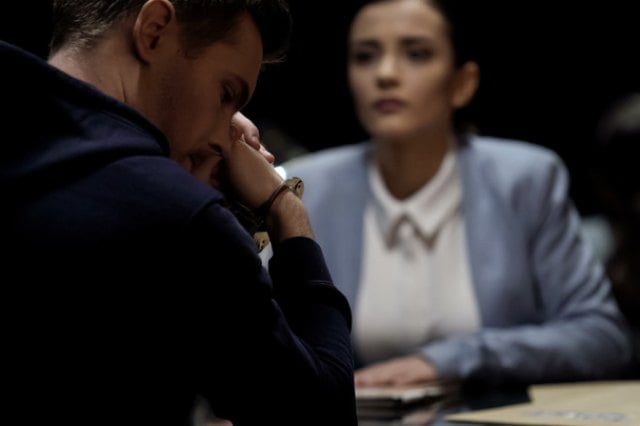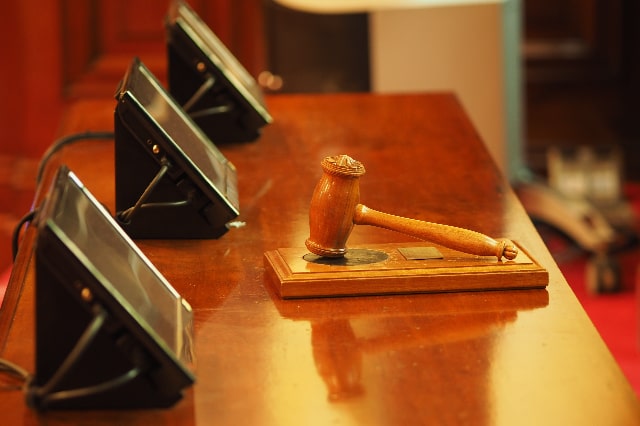Trusted criminal defense lawyer
If you have a Juvenile crimes case, hiring an Atlanta Juvenile crimes attorney from Conoscienti and Ledbetter can help you. Book an appointment with us today.
 Author: J. Blake Ledbetter, Partner, Conoscienti & Ledbetter
Author: J. Blake Ledbetter, Partner, Conoscienti & Ledbetter
Mr. Ledbetter specializes in civil litigation in metropolitan Atlanta, Georgia, and possesses vast experience in wrongful death lawsuits. Mr. Ledbetter was recognized as a SuperLawyers Rising Star in 2018 and 2019 in the area of Civil Litigation. Published on June 27, 2023.

Speak with experienced criminal defense lawyer today, for free.
Atlanta Juvenile Crimes Lawyer
In Georgia, if a minor gets arrested for a criminal offense, it is considered a juvenile crime. In the context of criminal prosecution, a minor is defined as an individual between the ages of thirteen and seventeen.
Under O.C.G.A. §16-3-1, the minimum age for criminal prosecution is 13 years old. This is because children below the age of 13 are considered unable to fully understand and intentionally commit delinquent acts.
Criminal convictions have devastating consequences for minors and their families. They may be arrested, placed on probation, and sent to juvenile prison. They may also lose educational, sponsorship, or employment opportunities. Depending on the crime’s severity and the minor’s age, the juvenile court may also decide to try the minor as an adult.
Navigating the juvenile criminal justice system is tough when you lack experience. So, hiring a knowledgeable criminal defense lawyer is highly recommended.
At Conoscienti and Ledbetter, we help our clients in Atlanta defend their juvenile cases. We can fight to protect your child’s rights and help bring them back home safely.
What Are the Types of Common Juvenile Offenses in Georgia?
Most offenses committed by minors in Georgia are treated as misdemeanor offenses. However, misdemeanor charges may be upgraded to felony charges if the minor has severe prior convictions.
Some common juvenile crimes include:
- Affray offenses: Minors may be arrested for fighting with two or more persons in a public place and causing disturbance to the public. The punishment for an affray conviction includes probation, license suspension, or community service.
- Driving under the influence (DUI): Minors caught driving with a per se legal limit of 0.02 grams or more will be arrested for DUI. The penalties for underage drivers convicted of DUI are up to one-year imprisonment and $1000 in fines.
- Designated felony offenses: These are serious felony offenses for which the Superior Court has jurisdiction. It includes offenses such as aggravated assault or murder. The sentencing for such offenses can vary significantly. For instance, a Class A designated felony offense could lead to a maximum punishment of up to five years of confinement in a juvenile detention center.
- Gang crimes: Under Georgia law, minors can be arrested for their intention to further criminal gang activity. Gang charges fall under the category of designated felonies. Penalties may include up to five years in a juvenile detention center and fines.
- Traffic offenses: These offenses include reckless driving, speeding, racing, and any felony that occurs while driving a vehicle. The penalties for traffic offenses may include license suspension, probation, or counseling.

Speak with trusted criminal defense lawyer today, for free.
What Are the Consequences of Juvenile Crimes in Georgia?
-
Community service
-
Confinement in a juvenile detention facility
-
Confinement in a juvenile facility for an unspecified time
-
Counseling or other mental health treatment
-
Detention in a juvenile facility for a specific period
-
Driver’s license suspension
-
Drug and alcohol counseling or treatment
-
Electronic monitoring
-
Fines and restitution
-
Confinement at home
-
Removal from the home and placement with another guardian
-
Supervised or unsupervised probation
-
Assigned as a ward of the state under the treatment and control of the court
Understanding the Georgia Juvenile Justice System
Juvenile Courts aim to hold minors accountable while acting in their best interests. They aim to provide treatment and rehabilitation rather than punishing a child.
Minors taken into custody are formally processed into the system. They are assigned a juvenile intake officer who will investigate the charges. If the officer has enough evidence, they will decide whether to hold the minor in custody pending their hearing.
Minors should not be kept at a detention facility for more than seventy-two hours unless there are specific reasons for detaining them. Some reasons include:
-
That the child is a threat to themselves and the public
-
That they are at risk of harm
-
That they have prior criminal convictions
-
That they are likely to commit the same offense if they are released

Don’t delay. Schedule a risk-free consultation today.
When Are Minors Charged as Adults?
Minors over thirteen who commit certain severe offenses may be treated as adults and brought before a superior court. After the minor is arrested, prosecutors may go past the juvenile delinquency process and file the case in a district court, where adult criminal cases are tried.
Some crimes that are charged in the adult court include:
- Aggravated assault
- Aggravated battery
- Aggravated sodomy
- Aggravated child molestation
- Aggravated sexual battery
- Armed robbery
- Arson in the first degree
- Attempted murder
- Drug trafficking
- Hijacking
- Kidnapping
- Murder
- Gang crimes
- Rape
- Voluntary manslaughter
How Do You Choose the Right Juvenile Attorney?
An experienced attorney familiar with juvenile law and its proceedings can give you a better chance of obtaining a better outcome. So, choosing the right attorney to represent you is essential. You should look for the following when choosing an attorney to represent your case:
- Whether they have handled various juvenile cases in Georgia
- Whether they are licensed to practice in Georgia
- Whether they are familiar with the processes at the juvenile court and adult court
Why Do You Need a Juvenile Crimes Attorney?
Juvenile crimes fall under a specific law area requiring an attorney’s experience. A criminal defense attorney can inform you of your rights as a juvenile and assist you in navigating the juvenile court system.
Conoscienti and Ledbetter’s juvenile attorneys have extensive knowledge about juvenile crimes. We understand when to request certain protections for our juvenile clients to protect their privacy rights. These include keeping their name confidential or requesting that they seal their records.
Our lawyers are familiar with juvenile proceedings and know how criminal charges may affect a child’s life. So, we represent them at the juvenile court and create an aggressive defense strategy on their behalf.
If the juvenile court enters a guilty verdict, we can request another sentencing option than what the court proposes. If the court decides that the minor be tried as an adult, we can negotiate for the child’s rehabilitation with the prosecution.
We understand that facing criminal charges as or for your minor can be a daunting and worrisome experience. However, we are here to provide individually tailored representation to guide you through this challenging situation.
Our dedicated team is committed to offering personalized legal assistance, ensuring that your minor receives the attention, support, and advocacy they deserve.
Contact us today if you are a minor or parent of a minor accused of committing delinquent acts.
Decatur Office
(404) 373-5800
315 W Ponce de Leon Ave. Suite 400 Decatur, GA 30030







